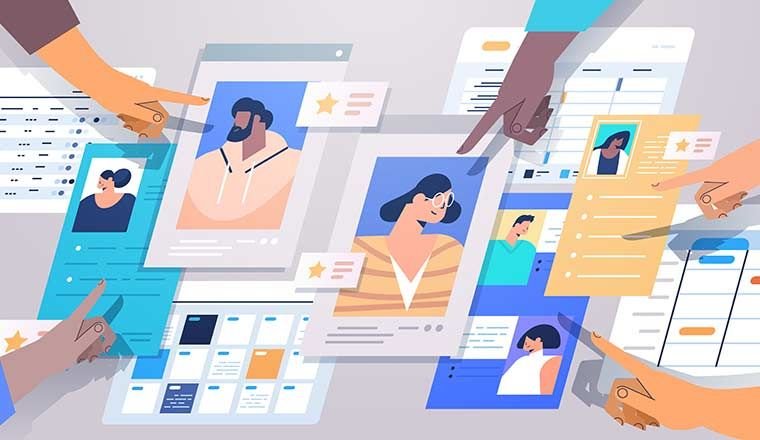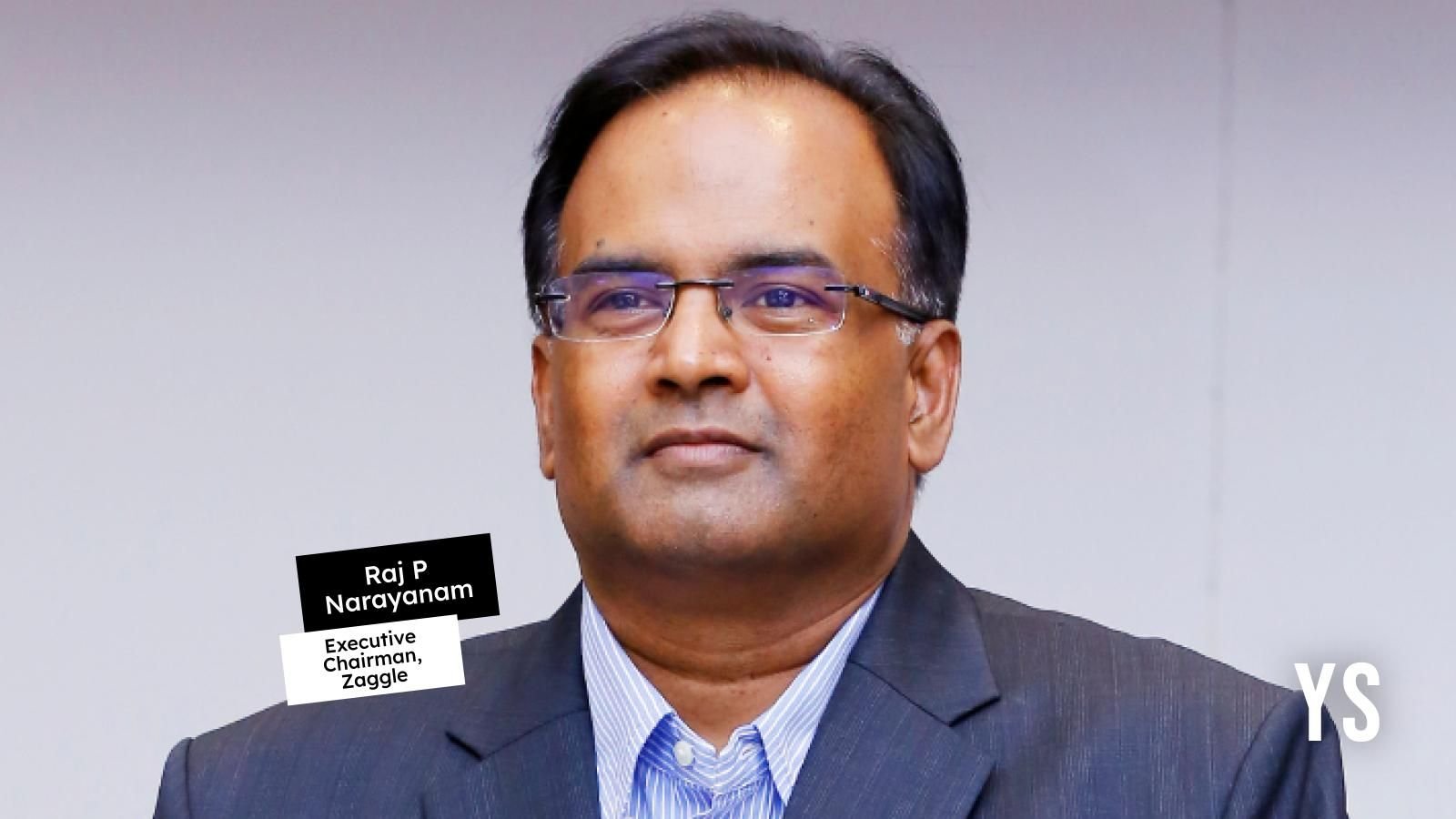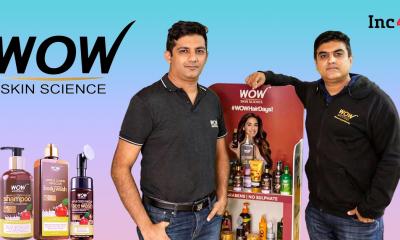Startup
How D2C brands are personalising the shopping experience

The experience of walking into a store and being greeted by a salesperson who seems to know exactly what you need has long been viewed as the pinnacle of personalised shopping. It’s that sense of recognition, of being understood as a customer, that creates trust and loyalty.
For a long time, this level of personalisation seemed out of reach for ecommerce, as the digital realm lacked the warmth and familiarity of in-person interactions. However, with significant advances in technology, this once-elusive experience has now been successfully integrated into the digital shopping world. Leading the charge in this transformation are direct-to-consumer (D2C) brands, redefining how personalisation is delivered across online platforms.
Gone are the days of generic product catalogues and one-size-fits-all marketing strategies. Today’s D2C brands are leveraging the power of data analytics, AI, and machine learning to craft bespoke, highly personalised shopping experiences. These experiences mimic the feel of a personal conversation between a customer and a trusted friend, rather than interactions with an impersonal corporation.
In fact, if numbers are to be believed, India’s D2C market is poised for rapid expansion and is expected to reach an impressive $60 billion by FY27, according to a joint report by logistics firm Shiprocket with CII and Praxis Global Alliance. The broader Indian ecommerce industry is projected to grow to $325 billion by 2030, as per investment promotion and facilitation agency Invest India. This growth is fuelled, in part, by the increasingly sophisticated personalisation strategies employed by brands.
Let’s delve into some key ways in which D2C brands are transforming the shopping experience.
Data-driven recommendations
At the heart of personalisation lies data. By analysing customer browsing history, purchase patterns, and even social media activity, D2C brands can craft product recommendations tailored to individual tastes and needs. This data-driven approach ensures that customers are presented with products they are more likely to purchase based on their preferences.
For example, a travel accessory retailer might suggest suitcases or handbag items that align with a customer’s travel and style preferences. These curated recommendations make the shopping journey more efficient and satisfying, reducing the customer’s decision-making burden.
Dynamic content
Another key innovation in personalised shopping is dynamic content, where a website’s homepage or landing pages adapt to each user. Instead of displaying the same static content to every visitor, dynamic content is shaped by previous interactions, offering tailored product suggestions or customised messaging.
Imagine visiting a website and seeing a homepage that offers discounts on items similar to your past purchases. This level of personalisation helps establish a deeper connection with the consumer, making the online shopping experience more immersive and relevant.
Personalised marketing campaigns
In the age of digital marketing, one-size-fits-all strategies are no longer effective. D2C brands are replacing mass email blasts with hyper-targeted campaigns, where marketing efforts are informed by customer behaviour and preferences. By segmenting customers based on their purchase history, browsing activity, or demographic information, brands can create personalised messages that resonate with specific audience segments.
For instance, a fitness brand might send tailored workout gear suggestions to customers based on their purchase history. At the same time, a food subscription service may offer discounts on items that match the customer’s dietary preferences. This individualised approach increases the likelihood of conversion and enhances customer engagement.
Interactive quizzes and surveys
Interactive tools like quizzes and surveys have become invaluable for D2C brands looking to personalise product recommendations. By asking customers about their preferences, styles, or needs, these quizzes create a profile that helps brands suggest the most suitable products.
For example, a skincare brand might use a quiz to identify a customer’s skin type, concerns, and goals, and then recommend a personalised skincare routine. These quizzes are engaging and help brands collect valuable data while giving customers a sense of control over their shopping journey, deepening the brand-customer relationship.
Loyalty programmes with a personal touch
Loyalty programmes have long been a staple of customer retention strategies, but D2C brands are taking them to the next level with personalisation. Instead of offering generic rewards, brands are now tailoring their loyalty programs to meet individual preferences. Repeat customers can be rewarded with personalised discounts, exclusive early access to new collections, or custom-tailored offers that match their shopping behaviour.
This approach fosters stronger brand loyalty by making customers feel valued and recognised, encouraging repeat purchases and long-term engagement.
Why personalisation matters
Personalisation is not merely a marketing trend; it has also proven to drive significant business outcomes. Brands that effectively integrate personalisation into their strategies are seeing measurable results, from increased conversion rates to higher customer satisfaction and loyalty.
Higher conversion rates: Personalised experiences increase conversion rates, as customers are more likely to purchase products tailored to their preferences. Personalisation can reduce customer acquisition costs, increase revenues, and improve marketing ROI.
Enhanced customer satisfaction and loyalty: When customers feel understood, they are more satisfied and loyal. Over time, this loyalty can transform customers into brand advocates, driving organic growth through word-of-mouth recommendations.
Transforming shopping experience
The personalisation revolution in D2C is not just about enhancing the customer experience—it’s about transforming the entire shopping journey. By leveraging data and technology, D2C brands are creating deeper connections with their customers, driving higher conversion rates, fostering loyalty, and ultimately, building lasting relationships that benefit both the brand and the consumer.
As the Indian D2C market continues to grow, those brands that prioritise and perfect personalisation will undoubtedly lead the way.
The author is Founder, EUME, a travel lifestyle and accessories brand.
(Disclaimer: The views and opinions expressed in this article are those of the author and do not necessarily reflect the views of YourStory.)
Startup
RBI permits UPI transactions via prepaid payment instruments using third-party apps

The on Friday allowed prepaid payment instruments holders to make and receive UPI payments through third-party mobile applications.
It has been decided to enable Unified Payments Interface (UPI) payments from/to full-KYC prepaid payment instruments (PPIs) through third-party UPI applications, the central bank said in circular.
“A PPI issuer shall enable holders of only its full-KYC PPIs to make UPI payments by linking its customer PPIs to its UPI handle. UPI transactions from PPI on the issuer’s application shall be authenticated using the customer’s existing PPI credentials,” it said.
Such a transaction will, thus, be pre-approved before it reaches the UPI system.
A PPI issuer, in its capacity as a payment system providers, should not on-board customers of any bank or any other PPI issuer, the RBI said.
The RBI’s decision is aimed at providing more flexibility to holders of PPIs such as gift cards, metro rail cards, and digital wallets, among others.
Currently, UPI payments from/to a bank account can be carried out using the UPI application of that bank or of any third-party application provider.
However, UPI payments from/to a PPI can only be carried out using the mobile application provided by the PPI issuer.
UPI is an instant real-time payment system developed by National Payments Corporation of India to facilitate inter-bank transactions through mobile phones.
PPIs are instruments that facilitate purchase of goods and services, conduct of financial services, and enable remittance facilities against the value stored therein.
Startup
Fresh capital commitments drive success of Bihar Business Connect 2024

In a renewed push to make the state of Bihar an attractive investor destination, the second edition of Bihar Business Connect 2024 registered commitments of Rs 1.8 lakh crore from various industry segments. The two-day event concluded on December 20 with 423 Memoranda of Understanding (MoU) between various industries across sectors and the state government.
The annual event, which was attended by national and global investors, also focused on encouraging MSMEs and startups in the state to set up a base for employment generation and encouraging entrepreneurship.
The event saw presentations from MSMEs and startups which have availed of government schemes including the plug-and-play facility to set up production units, a seed fund under the Bihar Startup Policy, and other benefits.
“Today we (state of Bihar) are ready to reclaim our place. With a population of 14 crore and a wealth of skilled youth excelling in exams like the UPSC, our potential is immense. It is time to harness this talent, uplift every section of the society and drive Bihar forward,” said Deputy Chief Minister of Bihar, Samrat Chaudhary, at the event.
Deputy Chief Minister Vijay Kumar Sinha added that the state has maintained double-digit growth for the past fifteen years and is charting its way to progress in different industrial sectors.
At the conclusion of the event, the state saw commitments of nearly Rs 90,734 crore from the renewable energy sector, the highest among all investments. Sun Petro Chemicals committed to an investment of Rs 36,700 crore. Dilip Shanghvi, Managing Director of Sun Petrochemicals, said that the company will make the investment in Bihar to set up solar projects and pumped hydro projects in the state. The renewable sector also saw commitments from Adani Group and NHPC.
Other sectors contributing significantly to the investments included general manufacturing, with commitments to the tune of Rs 55,888 crore, and the food processing industry, with commitments of Rs 13,663 crore. In the latter, SLMG Beverages, which is a leading bottler and distributor of Coca Cola beverages, committed to an investment of Rs 3,000 crore in the state.
Nitish Mishra, Industries and Tourism Minister in the Government of Bihar said, “Over the past 19 years, Bihar has risen from a negative growth rate to achieving historic milestones, now contributing significantly to the country’s growth.” He added that the MoUs signed in the current edition of the Bihar Business Connect were threefold of the previous year.
The event also saw the announcement of upcoming policies as part of a presentation by Bandana Preyashi, Secretary, Department of Industries at Government of Bihar. These included the Bihar Food Processing Policy 2024, Bihar Pharmaceuticals Promotion Policy 2024, Bihar Plastic Manufacturing Promotion Policy 2024, Biofuel Production Promotion Policy 2024 and the Bihar Wood Based Industries Policy 2024. She further added that new land parcels were being selected to meet sectoral needs, in addition to 1,800 acres of land made available.
Startup
SaaS fintech Zaggle plans at least 2 acquisitions next fiscal to drive growth

SaaS fintech platform Prepaid Ocean Services Ltd plans to acquire at least two companies in the next financial year to drive growth, a top company official said on Friday.
The new-age fintech this week raised Rs 595 crore through a qualified institutional placement.
“We are evaluating 5 to 6 potential targets in the SaaS FinTech space, including areas like merchant card software, accounts receivables, and FASTag solutions with plans to acquire at least two companies in the upcoming financial year,” Zaggle founder and Executive Chairman Raj Narayanam said.
“We are aiming for a billion-dollar revenue target within the next 5 to 6 years,” Raj noted.
The company is looking to strategically accelerate its growth trajectory through strategic acquisitions, he added.
Zaggle recently invested about Rs 48 crore to acquire stakes in two companies. It picked up a 98.32% controlling stake in Span Across IT Solutions (TaxSpanner) by infusing Rs 32.07 crore, and another Rs 15.60 crore was invested to secure a 26% stake in Mobileware Technologies.
Zaggle this week raised Rs 595 crore from investors, including Bank of India ELSS tax saver, Societe Generale – ODI ICICI Prudential Technology Fund and Nuvama Enhanced Dynamic Growth Equity (Edge) Fund through a qualified institutional placement.
A board committee approved the allotment of 1.13 crore equity shares at Rs 523.20 per share to eligible qualified institutional buyers on Monday.
Zaggle had reported a three-fold jump in consolidated net profit to Rs 20.3 crore for the July-September quarter. Revenue from operations for the September quarter was Rs 302.5 crore, up 64.22% over the year-ago period.
-

 Startup Stories1 year ago
Startup Stories1 year agoWhy Millennials, GenZs Are Riding The Investment Tech Wave In India
-

 Startup Stories1 year ago
Startup Stories1 year agoStartups That Caught Our Eyes In September 2023
-

 Startup Stories1 year ago
Startup Stories1 year agoHow Raaho Is Using Tech To Transform India’s Fragmented Commercial Trucking
-

 Startup Stories1 year ago
Startup Stories1 year agoMeet The 10 Indian Startup Gems In The Indian Jewellery Industry’s Crown
-

 Crptocurrency10 months ago
Crptocurrency10 months agoLither is Making Crypto Safe, Fun, and Profitable for Everyone!
-

 Startup Stories1 year ago
Startup Stories1 year agoWOW Skin Science’s Blueprint For Breaking Through In The $783 Bn BPC Segment
-

 Startup Stories1 year ago
Startup Stories1 year agoHow Volt Money Is Unlocking The Value Of Mutual Funds With Secured Lending
-

 E-commerce1 year ago
E-commerce1 year agoTop Online Couponing Trends To Watch Out For In 2016




